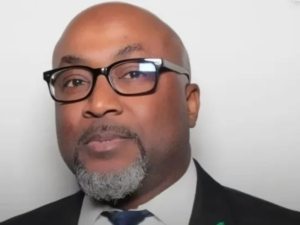Amid growing frustration over U.S. trade policies, African and Caribbean nations are uniting in an unprecedented move to reclaim economic sovereignty. The pushback comes in the wake of tariffs imposed by President Donald Trump that affected countries across both regions, sparking a call for equal partnerships and fairer global trade.
This historic shift was formally announced at the AfriCaribbean Trade and Investment Forum 2025, held in Grenada from July 28–30. The forum brought together regional leaders and policymakers determined to redefine their economic future together.
The Caribbean delegation, led by countries such as Grenada, Barbados, and St. Vincent, made their stance clear. Rejecting the status quo, they declared: “We’re done being stuck. We’re ready to trade with Africa.”
READ ALSO: Why Africa and the Caribbean still don’t trade directly
On a recent episode of The BreakDown on PanaGenius TV, Sandra Babu-Boateng delved into the significance of the alliance and what it signals for the balance of global power. She emphasized that this isn’t merely a trade agreement, it’s a new chapter in a long-divided relationship.
“This isn’t just a political pivot, it’s a signal,” she explained. “A signal that the Caribbean and Africa are finally rediscovering each other. Not through slavery and exploitation, but through trade, partnership, and shared destiny.”
“This moment might feel small maybe, but history tells us it’s the small defying acts that spark the biggest changes.”
Watch it below.
At the forum, Dr. Carla Barnett, Secretary-General of CARICOM, echoed the urgency of establishing robust, strategic connections between Africa and the Caribbean, citing uncertain futures with traditional Western partners.
“We must also decisively open the door to greater trade between our Regions,” Barnett said. “CARICOM trade with the Continent must grow beyond the current levels of less than three per cent (3%) of our overall trade, particularly with the uncertainty that currently looms over trade with traditional partners.”
She revealed plans to formalize a Memorandum of Understanding between CARICOM and Afreximbank, aiming to drive growth in trade, logistics, and connectivity.
“Trade and development financing has a critical role to play in the pursuit of trade and investment opportunities, and the realisation of our common development goals,” Barnett added. “CARICOM therefore welcomes and values the demonstrated commitment of the Afreximbank to partner in this critical endeavour.”
“I was delighted to participate in the groundbreaking ceremony for the Afreximbank African Trade Centre (AATC) in Bridgetown, Barbados, in March this year, a demonstration of the Bank’s long-term commitment to the Region.”
READ ALSO: Trump plans 10%+ tariffs on African, Caribbean imports; pharma and tech next
In her segment, Babu-Boateng also drew a powerful historical parallel, recalling the legacy of Maurice Bishop, the revolutionary Grenadian Prime Minister who challenged Western hegemony in the late 1970s.
She retold how, in 1979, Bishop led a popular revolution that ousted a Western-backed regime. His government championed self-reliance, people power, and solidarity with Africa and the global south. Under Bishop, Grenada welcomed engineers and doctors from Ghana and Tanzania, and aligned itself with Cuba.
“Our foreign policy is not based on whether you’re a capitalist or a socialist, but whether you respect the right of people to determine their own future,” Bishop once said.
Babu-Boateng described Bishop as “young, charismatic, just brilliant,” and said the West feared him because “Grenada under Bishop wasn’t playing the game.”
“It wasn’t asking for permission. It was building a different world.”
But his vision was cut short. In 1983, as Cold War tensions peaked and divisions emerged within his party, Bishop was assassinated. Just days later, the United States invaded Grenada.
Now, four decades later, history appears to be coming full circle. Africa and the Caribbean are again asserting their place on the global stage, this time, not through revolution, but through commerce, diplomacy, and a shared determination to shape their own future.
READ ALSO: As Trump’s tariffs loom, Barbados PM Mia Mottley issues rallying cry for Caribbean unity










